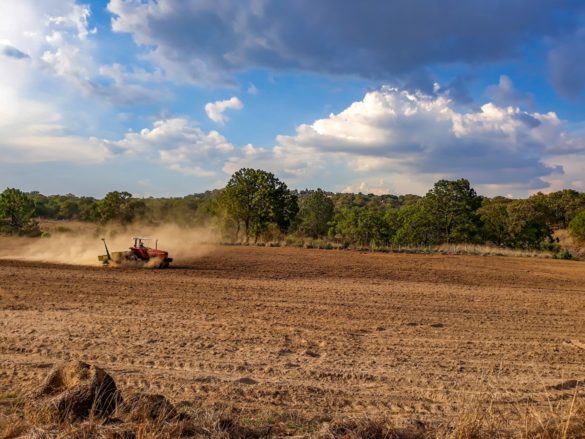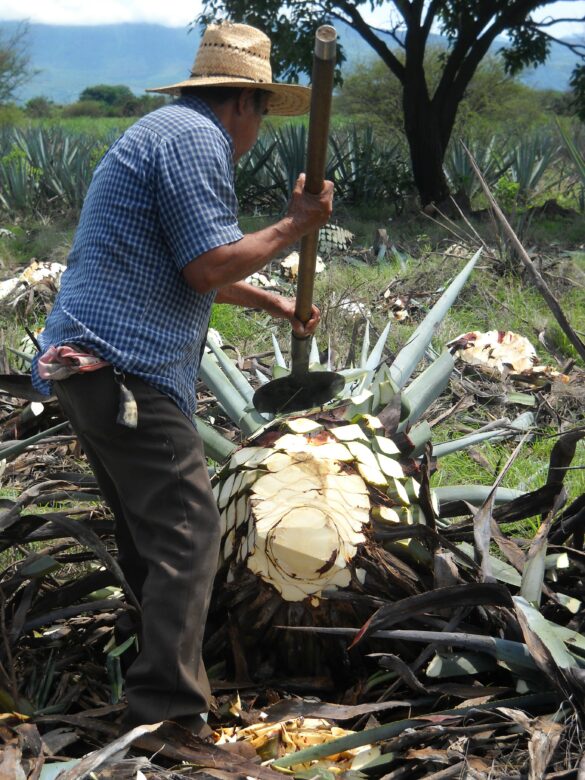Developing a Monitoring, Reporting and Verification and Monitoring & Evaluation System
In 2015, the State of Jalisco published the Law for Action on Climate Change of the State and set up the Inter-institutional Commission for Action on Climate Change (CICC by its acronym in Spanish). The CICC is responsible for coordinating and specifying the formulation and implementation of the State Climate Change Policy. It is comprised of 14 state agencies, six federal agencies, 17 representatives from civil society, academia and NGOs, and has three working groups: Mitigation, Adaptation and REDD+. In 2016 the State developed the Programme of Action on Climate Change (PEACC by its acronym in Spanish), which contemplated the development of a Monitoring, Reporting and Verification (MRV) and Monitoring and Evaluation (M&E) System for the actions contained in said program. The PEACC has three strategic axes: Adaptation, mitigation, and cross-cutting issues related to climate change, along with which the following measures and objectives have been defined:
Adaptation:
- Reduce vulnerability and increase the resilience of the social sector to the effects of climate change
- Reduce vulnerability and increase the resilience of strategic infrastructure and production systems in the face of climate change
- Conserve and sustainably use ecosystems and maintain the environmental services they provide
Mitigation:
- Sustainable cities, urban mobility and air quality
- Renewable Energy and Energy Efficiency.
- Strengthen and consolidate good agricultural and forestry practices
Cross-cutting:
- Communication, diffusion, innovation and environmental education linked to climate change
- International cooperation and leadership
- Monitoring, and evaluation
- Institutional coordination, aligned and inclusive policies
- Financial, economic and fiscal instruments and policies
Taking into account the strategic axes and lines of the PEACC, it was decided that the measures and actions to be integrated in the system should be aligned to these strategic axes. Therefore, the MRV and M&E System also has three components: Adaptation, mitigation and cross-cutting issues related to climate change. It is based on an online platform and aims to ensure the periodic, transparent and reliable evaluation of the progress regarding the goals established in the State Program for Action on Climate Change. It uses precise indicators and a database that provides information on all the measures and actions carried out by the different agencies of the state government. It includes 29 adaptation measures integrated in 61 actions, 30 measures and 43 action on mitigation, as well as 38 cross-cutting measures and actions for evaluation, totalling 83 measures and 124 actions of the 14 different state government agencies within the CICC.
A system of this type allows the government of the State of Jalisco to be positioned as a benchmark at the national level in terms of assuming a commitment to contribute to the Mexican National Determined Contribution (NDC). This type of system facilitates the identification of relationships between the quantified impacts and the policies established to act on them. And, in parallel, they support the involvement of different areas of government in the monitoring and evaluation of public policies on climate change. The MRV and M&E System further allows to guarantee greater transparency, precision and comparability of the information, improving its quality and allowing the configuration of databases, which in the future constitute a key asset for decision making. It also increases the probability of obtaining support for mitigation and adaptation measures, supports the accountability for climate finance, and helps to comply with international requirements.
Cooperative development process
The system was developed in a cooperative process, involving 14 state government agencies, the Deutsche Gesellschaft für Internationale Zusammenarbeit (GIZ), the State Secretariat of Environment and Territorial Development (SEMADET by its acronym in Spanish), Carbon Trust (as technical advisor to SEMADET) and the consultancy Factor CO2.
Between July and October 2016, meetings were held with the involved government agencies to analyse, review and prioritise the measures and actions against climate change carried out and planned by each of them. The resulting first set of measures and actions, was subsequently evaluated and prioritised in conjunction with SEMADET. Between March and August 2017, the Government of Jalisco, supported by Carbon Trust, redefined the final set of measures and actions that were transferred to the MRV and M&E System.
State agencies of the Government of Jalisco involved in the development of the MRV and M&E System:
| Ministry of Environment and Territorial Development | State Water Commission |
| Rural Development Secretariat | State Unit for Civil Protection and Firefighters |
| Secretariat of Mobility | Secretary of Tourism |
| Ministry of Infrastructure and Public Works | Ministry of Culture |
| Ministry of Economic Development | Ministry of Education |
| Secretary of Innovation, Science and Technology | General Secretariat of Government |
| Ministry of Development and Social Integration | Secretariat of Planning, Administration and Finance |
| Ministry of Health |
|
In a parallel process between August and December 2016, the structure of the MRV and M&E System was defined together with its specific monitoring and result indicators, and the individual information of each measure and action was contemplated. Finally, in the third stage (March 2017 – November 2017) the IT part of the System was developed, and the information was captured, refining the last details of the measures and actions collected.
In 2017, a training workshop on the MRV and M&E System was carried out involving all the state government agencies in order to train their staff on the functionalities of the system to report on the progress of their measures. Subsequently, in January 2018, the system was delivered and installed to SEMADET.
Development process of the MRV and M&E System:
Lessons learnt:
The development process of the MRV and M&E System for Jalisco has unveiled some aspects that should be taken into account when developing other similar systems, both in the State of Jalisco and in other Mexican states, including:
- Need for technical knowledge about climate change
Especially in the area of adaptation to climate change, but also in mitigation, it is necessary to generate greater knowledge of dependencies within the government, in order to transform the measures to direct actions and not only to the generation of knowledge. To this end, training on climate change should be a measure in itself, acting across the entire government through an established program.
- Need for prioritisation of measures
Although the actions for mitigation and adaptation to climate change are numerous, due to the cross-cutting nature of the phenomenon, and the diverse dependencies of the state government, it is important to limit – to a manageable extent – the number of measures and actions that are going to be subject to monitoring, reporting and verification. A good practice in this regard is the identification of those measures and actions that have a direct impact on GHG emissions or on reducing vulnerability and increasing the adaptive capacity of the sector to which they are directed. In this way, efforts will be directed towards the most relevant measures and actions for the MRV of the strategic axes of the PEACC.
- Importance of defining the scope of the MRV and M&E System
When considering the development of an MRV and M&E system, the definition of a large number of measures and actions entails an important effort for its follow-up, which can be a barrier to the process. This is due to the fact that for each action it is usually necessary to define at least one follow-up indicator and another result indicator, which is normally required to be updated each year.
- Need for a global index of adaptation to climate change
The lack of existence of a common indicator of results for the area of adaptation to climate change, complicates the analysis and communication of the results linked to it.






